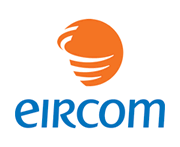 In February 2009, IRMA – which controls 90% of Ireland’s recorded music and represents the labels EMI, Sony, Universal and Warner – reached a private agreement with Ireland’s largest ISP, Eircom, which would see them implement a 3 strikes-style arrangement for dealing with alleged pirates.
In February 2009, IRMA – which controls 90% of Ireland’s recorded music and represents the labels EMI, Sony, Universal and Warner – reached a private agreement with Ireland’s largest ISP, Eircom, which would see them implement a 3 strikes-style arrangement for dealing with alleged pirates.
A leaked document, titled ‘Briefing Note on Arrangement Between Eircom and Irish Recorded Music Association (IRMA) with regard to Copyright Infringement March 2009’ provided background information on how the deal would operate.
IRMA would supply IP addresses they believed to be connected with infringements to Eircom (collected by anti-piracy company, DtecNet) and the ISP would send warning notices to its customers who were allocated those IP addresses at the time of the alleged illicit file-sharing. Any customer receiving a third warning would be served with a termination notice and disconnected by Eircom.
However, the implementation of this groundbreaking agreement had been held up by a legal objection surrounding the legal standing of an IP address.
Today, at the High Court in Dublin, Mr. Justice Charleton gave his ruling on the case and it’s not good news for Eircom customers. The judge decided that in this specific case an IP address is not personal data and gave the green light for the Eircom/IRMA 3 strikes arrangement to go ahead.
“The right to be identified with and to reasonably exploit one’s own original creative endeavour I regard as a human right,” wrote Justice Charleton.
“It is completely within the legitimate standing of Eircom to act, and to be seen to act, as a body which upholds the law and Constitution. That is what the Court expects of both individuals and companies.”
The judge added that the Internet is ‘only’ a means of communication and has not rewritten the laws of countries through which it passes.
“It is not an amorphous extraterrestrial body with an entitlement to norms that run counter to the fundamental principles of human rights. There is nothing in the criminal or civil law which legalises that which is otherwise illegal simply because the transaction takes place over the Internet,” he concluded.
In a statement, Dick Doyle, Director General of IRMA said: “We are very pleased with this decision today. Resolving this issue has caused 6 months of disruption to the IRMA/Eircom agreement. We will now proceed immediately to implement the full agreement.”
This announcement now paves the way for IRMA to go after other Irish ISPs to force them to implement the same type of arrangement. No Digital Economy Act required there, just good old brute force.





